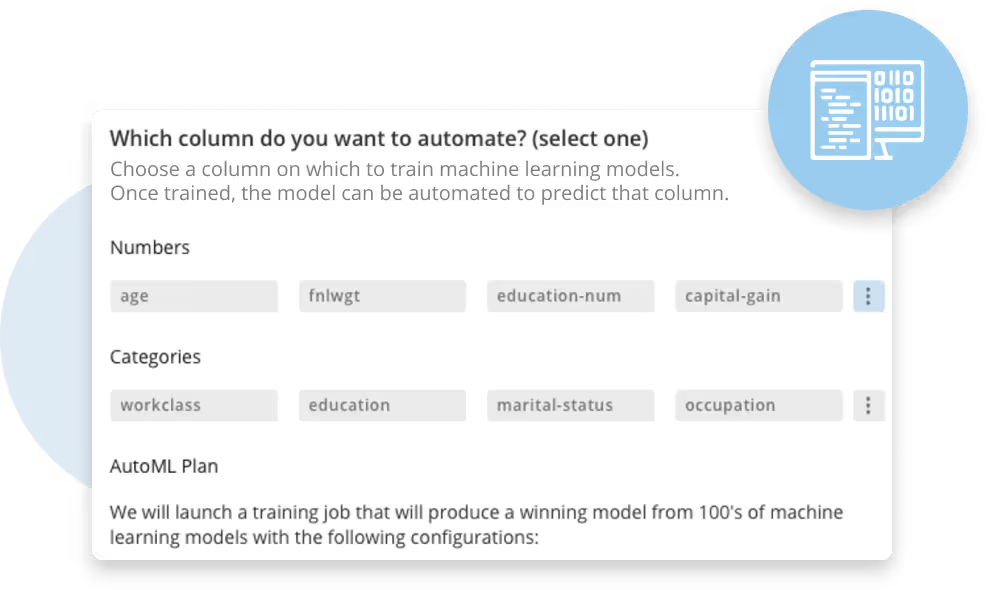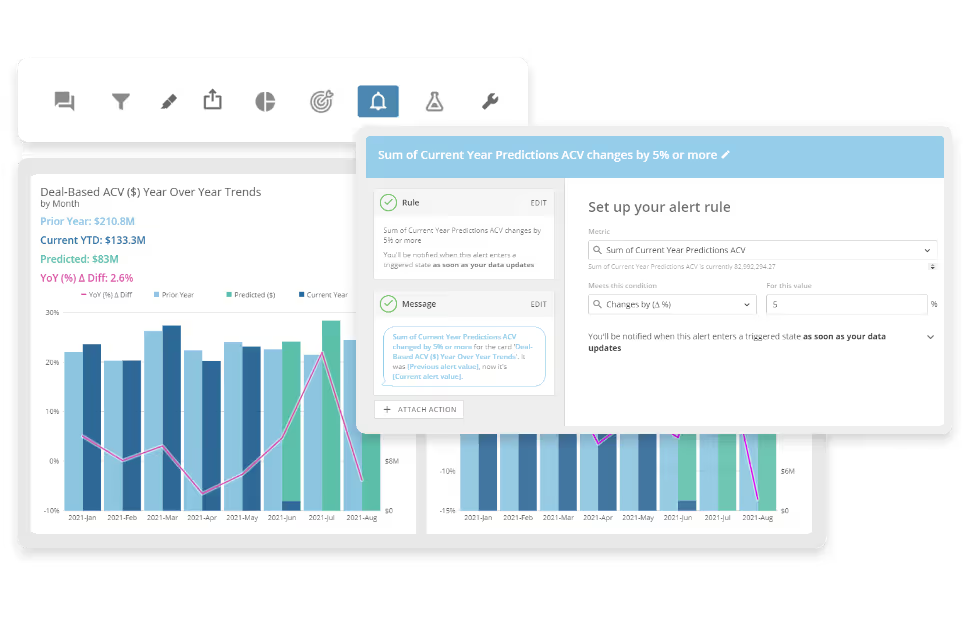What is a Data Science Platform?

What is a Data Science Platform?
Data science incorporates various disciplines, including data engineering, data preparation, data mining, predictive analytics, machine learning, and data visualization. And a data science platform is software that includes various technologies for machine learning and other advanced analytics uses. A data science platform allows data scientists to discover actionable insights, communicate those insights, and plan strategically and proactively.
Data Science and Machine Learning
Data science incorporates different disciplines, including machine learning. While data science aims to gather actionable insights from data, machine learning is a group of techniques used by data scientists to allow computers to learn from data.
The practice of data science requires a skilled data scientist to extract insights from data and apply what is learned to real-world applications. Machine learning informs decisions and makes predictions efficiently and reliably by testing different solutions against the available data to find the best solution to a problem at hand. Therefore, machine learning adds value to various industries, including healthcare, cybersecurity, and more.
Data Science and Machine Learning Workflows
A data science workflow is a set of guardrails to help data scientists plan, organize, and implement a data science project effectively. Different data science workflow frameworks exist, but they all consist of the following data phases: understand, acquire, clean, explore, model, evaluate, communicate, deploy, monitor.
Machine learning workflows help outline which phases should be implemented during a machine learning project. The phases include data collection, data pre-processing, building datasets, model training and refinement, evaluation, and deployment to production. In machine learning, it’s important to build a flexible workflow so you can scale to a production-grade solution when necessary.

Why is Machine Learning Important for Data Science?
Machine learning is not only beneficial for data scientists, but it’s a new technology in modern data science. What machine learning does is allow computers to learn from available data autonomously, creating many real-world applications. Data scientists also use machine learning to make quality predictions and estimations, and machine learning is transforming how data mining and interpretation work.
While data scientists organize data and apply the right tools to make use of the given data, machine learning puts computers in a self-learning mode that helps automate processes that data scientists use.
Machine learning as a subfield for artificial intelligence
Machine learning trains a machine how to learn, and artificial intelligence applies machine learning to solve problems. The difference between the two is that machine learning promotes the idea that machines should learn and adapt through experience and artificial intelligence promotes the idea that machines can smartly execute tasks.
What Should a Data Science and Machine Learning Platform Include?
Data science and machine learning platforms support data scientists in developing and deploying data science and machine learning solutions. These platforms should serve as the building blocks to solve problems, gather insights, and inform business decision-making.
These platforms need to support data and analytics tasks, including visualization, interactive exploration, deployment, performance engineering data preparation, and data access. And they need to be able to run fast enough to provide accurate results.
With the creation of cloud-based platforms, data scientists can access data whenever and wherever they need it and share findings when necessary.

Machine Learning and the Development of Data Science
Recent breakthroughs in machine learning have helped to develop the field of data science. These breakthroughs include natural language processing, image recognition, and the creation of new images, music, and texts from machines. And then there’s the fact that machine learning is a subfield for artificial intelligence. Pattern recognition and machine learning are needed to build artificial intelligence that can function on its own.
Machine Learning for Business
While machine learning is consistently evolving, its impact on business is yet to be determined. To become a data-driven organization, businesses need to adopt change and introduce new initiatives and training around machine learning. If a business isn’t accustomed to making decisions with machine learning, then change may be slower to come by. However, when there is more access to integrated data, there is room for improvements and innovation.
Can Machine Learning Improve Business Decision-Making?
Data science is used to inform business decisions, and by working with machine learning models, it’s become possible to improve upon business decisions.
For example, it’s possible to predict future customer or market behavior based on past trends. And by understanding and identifying customer patterns with natural language processing modeling, you can accurately predict positive and negative customer experiences ahead of time. This is just one way that machine learning can be used to help streamline business processes. Other examples include using machine learning to help price goods and services competitively or using machine learning in combination with artificial intelligence to help with consumer protection and intelligent process automation.
Currently, there are several industries that are utilizing machine learning, including healthcare, cybersecurity, and financial services. Machine learning allows doctors to assess a patient’s health in real-time, and certain machine learning algorithms in healthcare can actually help detect cancerous tumors early on. In financial services, machine learning enables investors to identify new opportunities and helps them find opportune times to trade. And when it comes to cybersecurity, machine learning can help to detect and mitigate signs of fraud. With Domo, you have access to sophisticated detection systems to identify transactions that pose a risk so you can leverage prescriptive early warning systems to remediate fraud risk ahead of time.
In fact, Domo has launched automated machine learning (AutoML) to make data science available for all. AutoML helps turn business users into data scientists by automating the data science process so they can go from data to data models to outcomes even faster. AutoML doesn’t just make data science accessible; it also allows data science experts to focus on more complex data science initiatives to unlock new insights and provide value.
Access to data and machine learning not only inform decision-making but allow for new innovations to occur.

What Does the Future of Data Science and Machine Learning Look Like?
When looking towards the future, automated machine learning (AutoML) has the potential to facilitate the end-to-end model development process. Currently, AutoML allows a business user to apply complex machine learning models and techniques without being a data scientist. With this comes the potential to change the entire technology landscape.
And with more and more industries employing machine learning, new innovations will occur, and specific industries may achieve certain breakthroughs. For example, with machine learning, the healthcare industry can better predict and prevent possible diseases and speed up drug testing time so drugs for treatment can come to market faster.
Not only that, but the automotive industry has room to benefit from machine learning too. For instance, Tesla, Waymo, and Honda are currently exploring the idea of self-driving cars. And deep learning, a class of machine learning algorithms, can help make path planning, scene classification, and obstacle and pedestrian detection a reality for autonomous vehicle manufacturing. Plus, machine learning helps reduce costs, enhance quality control, and improve supply chain management in manufacturing.
So the potential advancements in data science because of machine learning are endless.



